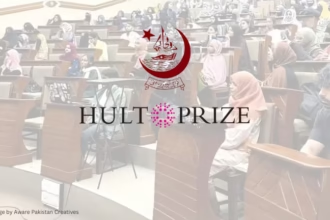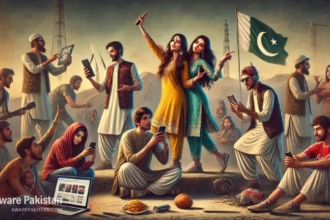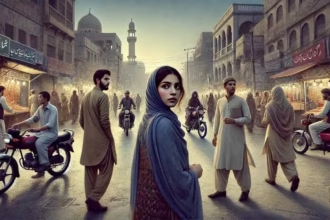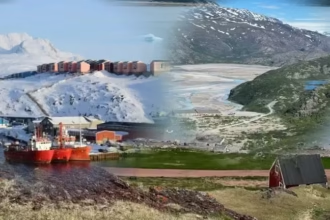The process of recruiting new ministers and advisors for the cabinet has not stopped, and it is well-known that the government is spending heavily on allies and neglecting the plight of the poor in the country. The high value of the dollar has also shattered the illusions of many, but the decision to close markets at 8 o’clock has been implemented.
The government, which has close ties with China and Saudi Arabia, assures that the economy will recover after receiving loans, but data from the State Bank suggests otherwise. Even if friendly countries provide loans, what will happen to the repayments that borrowers must make first?
The IMF is a last resort, but complying with its conditions may be the final blow to the government’s poor performance. Due to this fear, the finance minister has halted his steps towards the fund. Expensive petrol, expensive electricity, and rising food prices may turn the economy around, but these measures will also lead to a downward spiral for the people. In this scenario, the government and its parties will face strong opposition from the public.
Even with the IMF, our relationship is between governments. It has become such a burden that even if we accept it, we will struggle to survive, and even if we reject it, it is impossible to live without it. It seems that once again, efforts will be made to rebuild our economic structure in light of its strict conditions.
Rising petrol and electricity prices, along with increasing food costs, will turn the economy around, but also lead to a downward spiral for the people.
Pakistan Tehreek-e-Insaf’s poor economic policies, the deteriorating conditions due to the Corona epidemic, and the government’s focus on revenge instead of improving the lives of the people have left the Pakistani economy in shambles. This coalition government, which came to power with promises of reducing inflation, has only brought disappointment to the people.
It has become increasingly difficult for middle-class citizens to manage their households in this era. Income is not increasing and expenses are out of control. The imbalance between income and expenditure has made people’s lives miserable. For example, flour, a basic necessity, has become scarce due to the government’s poor import policy. During the Russia-Ukraine conflict, we bought expensive wheat, which doubled the rates of our wheat in warehouses and was exploited by hoarders.
In a large province like Balochistan, the government’s stocks of wheat have been depleted, causing a 20kg bag of flour to be sold for Rs.2300. People stand in long queues all day to buy a few kilos of flour. Wheat is scarce, and bread has also become expensive. A roti (loaf) that used to cost 15 rupees is now available for 20 or 25 rupees. The sky seems to be falling on people’s heads when they hear the price of flour in Pakistan. In many cities in Punjab, the price has reached 150 to 160 rupees per kg, while the price control committees are busy with their own agendas.
Utility stores used to be a blessing for the poor and middle-class to buy groceries, but that is no longer the case. They are now called government subsidies, but prices are increasing there day by day.
It has become increasingly difficult for middle-class citizens to manage their households in this era. Income is not increasing and expenses are out of control.
In winter, gas has also disappeared from stoves, while the price of LPG cylinders has gone up from 1200 to 2500.
The first step of inflation is expensive petrol, which causes people to become paralyzed. Then, the expensive electricity takes all of their effort. The irony is that in many cities, heavy bills are being sent without a meter reading, making all necessities of life out of reach for people. During the past two years, house rents in the middle areas of big cities have increased by about 30 percent, making living in posh areas a dream. Due to expensive petroleum products, public transport and ship and rail fares have also increased substantially during this period.
The irony is that government expenditure is not decreasing. Millions of vehicles, lengthy protocols, and a large number of advisors, ministers, and foreign trips are still happening, but even in the examination hall of austerity, people are being forcibly held and seated. In the big cities of Pakistan, business only starts late at night. Due to weak economic policies, the already struggling business community is now in more trouble.
The finance minister has changed, but if he does not change the destiny of the people who are suffering from inflation and poverty, their fate will not change. Ishaq Dar was placed at the head of the people by evoking tales of economic experimentation, but neither a dollar was caught from him nor was he able to take the stagnant economy off the ventilator. The inflationary genie is out of the bottle. Now, if we control it, the country will be bankrupt, and if we don’t, the people will be burdened by it. The government is weighing the option of bringing in a mini-budget, and double deficits have also become a threat to economic stability. In these conditions, the growth rate is not increasing. In this world of unemployment, thousands of youths are standing in queues for government jobs.
On the one hand, the government claims that everything belongs to the previous government, so it is better to adopt the previous government’s mistakes than to let them finish their term with their mistakes, causing their own defeat in the next election. But you have put yourself to the test by taking all the problems into your head. The people used to ignore the previous ones as inexperienced, but your history of sitting in the seat of power and running the country has also been a witness. Now, if in your government, bread costs 20 to 25 rupees and onions cost 260 rupees per kg, then what narrative will you take to the public?


